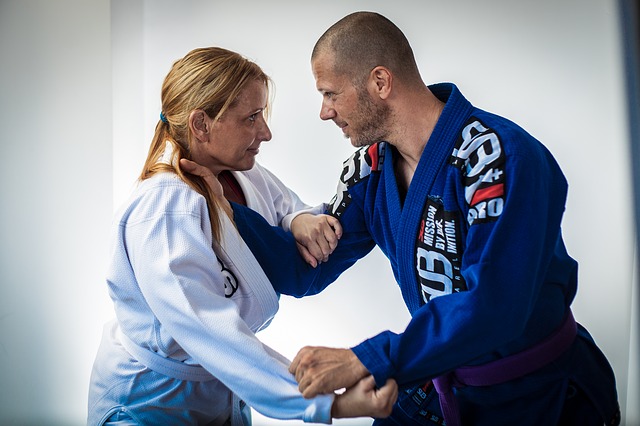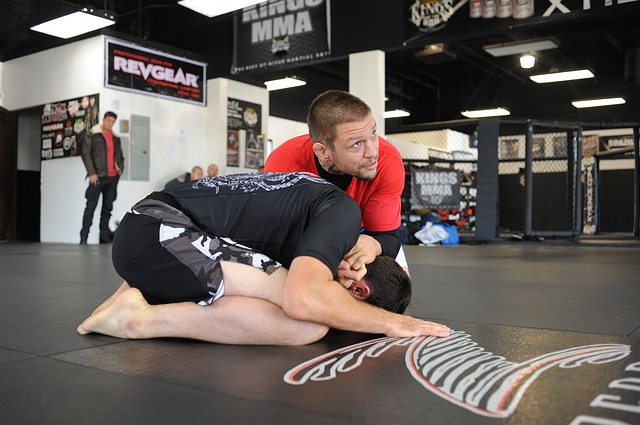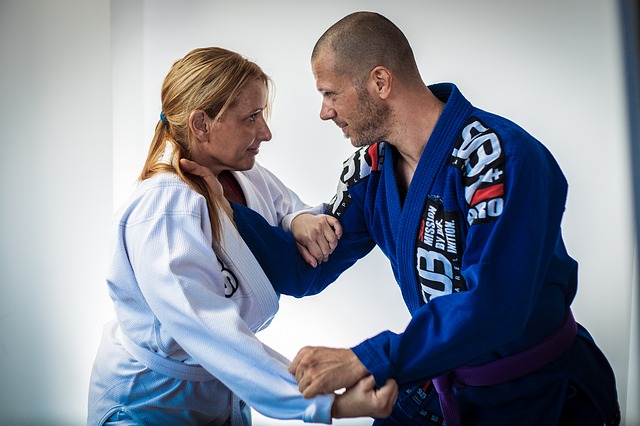BJJ or Wing Chun for Self-Defense: Our Full Guide 2025
BJJ and Wing Chun are fundamentally very different martial arts though both of them have self-defense at their core of values. Wing-Chun is a striking based art-form which makes it very useful when someone comes charging at you with punches. BJJ, however, is ground-fighting based martial arts. This makes it, in our opinion, a little more suited for self-defense scenarios because most street-fights end up on the ground. That does not mean though that Wing-Chun can’t help with street fights at all. Read on to find out more.
You can be the most peaceful person out there, but sometimes it is the fights which come to you. Whether you have been in the unfortunate situation of having had to defend yourself, or whether you feel the need to keep yourself, your family, and friends safe, learning a martial arts will come a long way in developing the skills needed to be “street-ready”
Of all popular forms of martial arts – BJJ and Wing Chun are the most well-known when it comes to self-defense. If you are aiming to pick one of them to get yourself trained in self-defense – first you need to know the differences between them to determine which one would work best for you.
The below section manifests all the major differences that you should consider to make up your mind. So, without any further ado, scroll down and read them carefully.

Differences Between BJJ and Wing Chun
BJJ and Wing Chun, both are almost neck and neck when it’s come to self-defense, yet they have their fair share of differences that can clearly change your life forever. While both of them are “empty-hands” forms of martial arts, BJJ covers one-on-one combat and Wing Chun covers close distance combat. Starting from this, they have many more considerable distinctions between them which sets them apart. Have a look at them below.
Principles
The principles of BJJ and Wing Chun can be said to be almost the opposite. Whereas Wing Chun focuses on attacking the weak points of enemies, BJJ emphasizes using the strength and weight of the enemy against him.
Wing Chun is fundamentally based on reflexive actions, it trains you to respond instinctually and immediately to a sudden attack. It aims to teach you defense and counter-attack simultaneously for unforeseen attacks.
On the other hand, BJJ prepares you to battle against what you see coming to you and teaches you to overpower your enemy by grappling. Favorably, both of them are less concerned with practitioners’ size, weight, and strength. Nevertheless, a certain amount of flexibility is expected for both of them (but that’s someone everyone of us can easily work on every day for just a few minutes).
Techniques
BJJ and Wing Chun both offer several intuitive techniques for attacking and defending. Between them, BJJ focuses on grappling and Wing Chun focuses on striking, punching, and kicking.
However, BJJ techniques will solely permit you to fight against only one attacker. On the other hand, Wing Chun may come out to be better for street fights as its techniques allow you to fight multiple attackers alone.
That being said, it is important for you to know that since Wing Chun doesn’t include grappling techniques, the possibility is that you are likely to lose a fight if your enemy manages to throw you down which is what usually happens in street fights.
Teaching Process
Now that you know that BJJ and Wing Chun both entail relatively different styles of fighting, it is obvious that training and practice is also going to be quite different.
In BJJ training classes, first, your instructors will select the pairs according to the present practitioners’ physique, as all BJJ techniques involve two people. And, then the coache will demonstrate the techniques that you are supposed to perform. You will basically have to repeat those moves after them with your partner.
As Wing Chun has 108 varieties of movements, initially the trainers proceed with the basic techniques at first. In this case, the trainer gives brief instructions to all the students present in the class at once.
Again, both of the two teaching processes use drilling as the means of practicing and brushing up students’ learnings. During the assessment period, instructors evaluate the students’ performance and following that, help them by correcting and improving their form.
How Long Does It Take to Learn?
BJJ is thoughtfully designed to be learned within the shortest possible time compared to other standard martial arts, at least when it comes to self-defense. To learn the very basic techniques of BJJ, it would take up to one to one and a half years of practicing – depending on the number of classes you attend per week.
In comparison to that, Wing Chun requires a longer time duration. Although its techniques are said to be easier than BJJ’s; yet with having such a whopping number of movements, it only makes sense that it’s going to take longer to learn.
If you happen to be very keen and intend to be very regular with your training, then it might take about three years of time, or otherwise, the duration would be stretched to five years or more.
Risks Involved
If you start digging around about the potential risk BJJ brings, you will be surprised to find that in relation to accidents, it a very safe sport overall. Although, minor injuries during practice can occur, for instance, elbow, or knee sprain.
But when it comes to Wing Chun, the injury risk is more apparent as it involves varieties of techniques including different types of kicks, punches, push-backs, and similar moves. These moves are likely to cause injury if you lose your focus even for a jiffy.

Benefits of BJJ
While learning BJJ techniques can be a bit overwhelming sometimes, yet the plethora of benefits make it worthwhile. Not only does it help you learn self-defense, but it also comes with myriads of other benefits. Given how easy it is to get in shape with BJJ, you would never want to hit the gym ever again.
Moreover, if you are too caught up in your work schedule and seem to have a really hard time there, BJJ can alleviate your stress too. In fact, doing BJJ regularly not only helps relieve stress but also restores your energy and boosts up your working spirit. You’ll find yourself more enthusiastic and focused than before.
Benefits of Wing Chun
For anyone who wants to learn powerful self-defense skills while enhancing their health, fitness, and well-being to a great degree, Wing Chun works like a charm for them. If you want to burn your calories off without feeling the hard work, while developing a skill for life, Wing Chung is the way to go.
It will improve your health in a way that’ll make you feel good from the inside and strong on the outside. You will discover a powerful mental endurance that you never knew you had. You may not even realize it at first, but soon you will see a great deal of improvement in your focus and strength. Your life will change for the better and your productivity will take you to a whole new level.

BJJ vs Wing Chun: Pros and Cons Overview
This section is to let you know the specific pros and cons of the two art forms – BJJ and Wing Chun. Skim through them carefully to check out all the benefits and disadvantages to decide which one would be the best for your self-defense training.
Pros of BJJ
- Allows you to overpower your opponents with a stronger physique
- Enables women to defend themselves from any iffy situation
- Allows you to de-escalate a situation while avoiding violence and blood-shed, for example with rear-naked chokes and armbars
- Helps to lose weight and gets you into a better shape
- Prevents the possible risks of chronic illnesses
- Releases all your physical and mental stress
Cons of BJJ
- Doesn’t include any techniques that allows you to fight multiple attackers
- Does not necessarily include any techniques that allow you to fight armed attackers
- Cannot be drilled without a partner (Should actually be a pro because partner training leads to more realism in practice)
Pros of Wing Chun
- Enables you to fight multiple attackers
- Strengthens your muscle’s tone and endurance
- Drilling a variety of techniques extends your flexibility
- Enhances your health and nerve system
Cons of Wing Chun
- Comes with numbers of potential health risk s
- Only teaches you to defend Wing Chun attacks
- You’ll lose the fight instantly if your enemy happened to grapple you
Final Words
This article is dedicated to those who are planning to dip their toes in self-defense lately but got stuck into the dilemma of whether to go with BJJ or Wing Chun. Aside from being just a sport, BJJ and Wing Chun both are hailed to be a great solution for self-defense. Both of them fairly own their distinct techniques and advantages, however when it comes to street-readiness we would recommend BJJ due to the nature of street-fights ending up on the ground more often than not.

